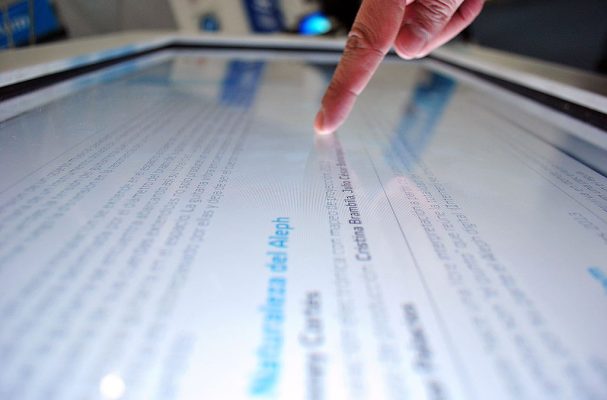Touchscreen News
Study: More Children Now Using Touchscreen Devices
The times are changing, which is apparent from the increasing number of children now using touchscreen devices. Devices like Apple iPads, touchscreen laptops, and other electronics with touchscreen interfaces have become commonplace in today’s society. So much in fact that nearly a third of all children in the United States have used a touchscreen device before celebrating their first birthday.
According to a study presented by the Pediatric Academic Societies while speaking at the annual meeting in San Diego, California, 36% of children have used a touchscreen device at least once before the age of one. That’s a pretty substantial number that attests to the growing trend of touchscreens, not only for adults but for children as well. Kids are often given tablets and other touchscreen devices by their parents or teachers, introducing them to a range of new entertainment and learning possibilities.
The study cited in this meeting was conducted by researchers at the pediatrics department of Einstein Medical Center in Philadelphia, Pennsylvania. It’s important to note that the 36% of children cited in this statistic had “touched or scrolled” on a touchscreen by their first birthday, so they didn’t necessarily have an engaging experience. However, the study also found that 15% of children has used a touchscreen app at least once before their first birthday.
Furthermore, researchers from the pediatrics department of Einstein Medical Center found that the “majority” of children were using digital devices, playing video games, and watching television by the age of two, and more than 25% of children were using mobile devices for at least an hour each day by this same age. When speaking of 4-year-olds, the percentage of children who were using digital devices increased to 38%
“It’s what they call a transparent technology, and the idea behind that is, it’s designed to be a technology that somebody can use without having to learn how to use it. We touch and see as part of our daily interactions with the world, and so touchscreen technology takes advantage of natural human sensors,” said Dr. Nicholas Bowman, an Assistant Professor of Communications at WVU.
This isn’t a trend that will likely go away anytime soon. Researchers note that touchscreens have become commonplace in today’s society. And as the technology evolves, it will integrate into other aspects of our daily lives.

